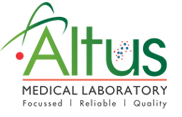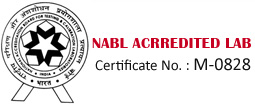DESMOGLEIN (DSG) 1 AND 3 ANTIBODY, QUANTITATIVE, EIA
Home /
DESMOGLEIN (DSG) 1 AND 3 ANTIBODY, QUANTITATIVE, EIA
Pemphigus includes a group of often fatal autoimmune, blistering diseases characterized by intraepithelial lesions. Pemphigus vulgaris and its variants may present with oral or mucosal lesions alone or with mucosal plus skin lesions. Pemphigus foliaceous and variants present with skin lesions alone.
Indirect immunofluorescence (IIF) studies reveal that both forms of pemphigus are caused by autoantibodies to cell surface antigens of stratified epithelia or mucous membranes and skin. These antibodies bind to calcium-dependent adhesion molecules in cell surface desmosomes, notably desmoglein 1 (DSG1) in pemphigus foliaceus and desmoglein 3 (DSG3) and/or DSG1 in pemphigus vulgaris. Desmogleins are protein substances located in and on the surface of keratinocytes. These proteins have been shown to be a critical factor in cell-to-cell adhesion. Antibodies to desmogleins can result in loss of cell adhesion, the primary cause of blister formation in pemphigus.
The diagnosis of pemphigus depends on biopsy and serum studies that characterize lesions and detect the autoantibodies that cause them. Originally, the serum studies were performed by IIF using monkey esophagus and other tissue substrates. The identification of the reactive antigens as DSG1 and DSG3 has made it possible to develop highly specific and sensitive enzyme-linked immunosorbent assay methods.
TEST PERFORMED ON US FDA APPROVED EUROOIMMUN EIA KIT
REPORT AVAILABILITY: SAMPLE MONDAY TO SATURDAY; REPORT SAME DAY
COLLECTION CENTERS
SECTOR 32 D:-
- Booth No. 116, Sector 32 D, Chandigarh-160032
- Ph No:- 950-145-0138
SECTOR 11 D:-
- Booth No. 140, Sector 11 D, Chandigarh-160011
- Ph No:- 977-907-8790



